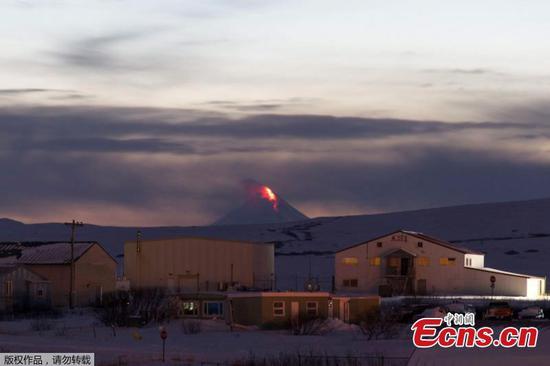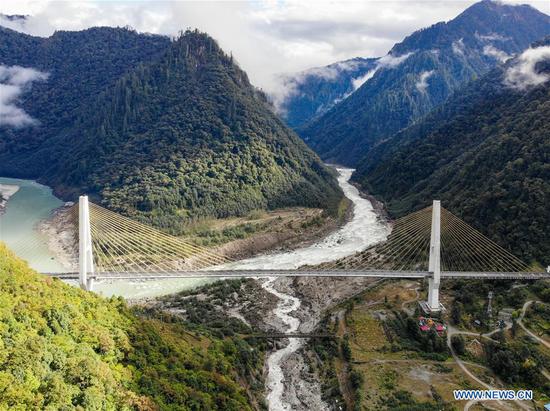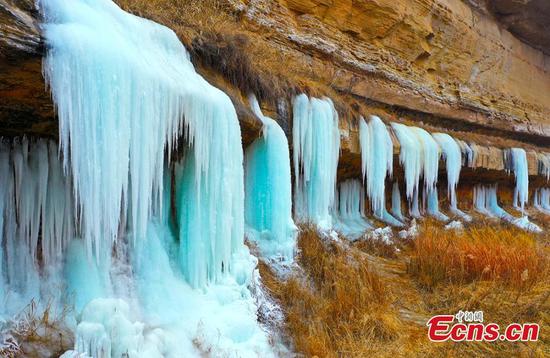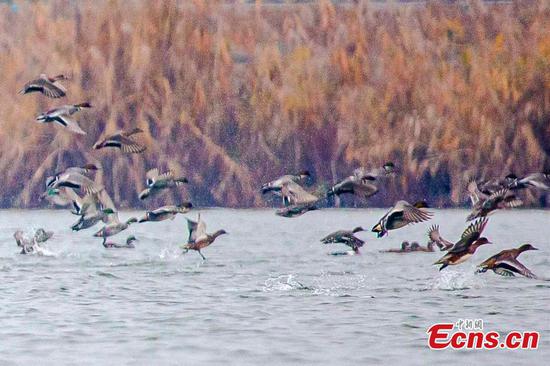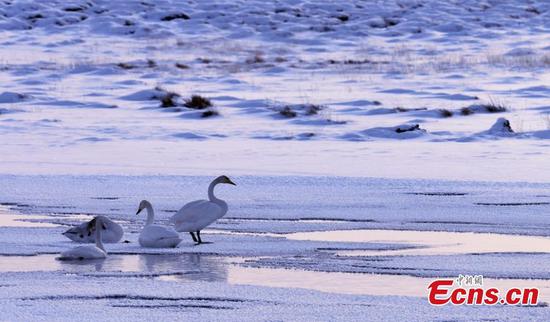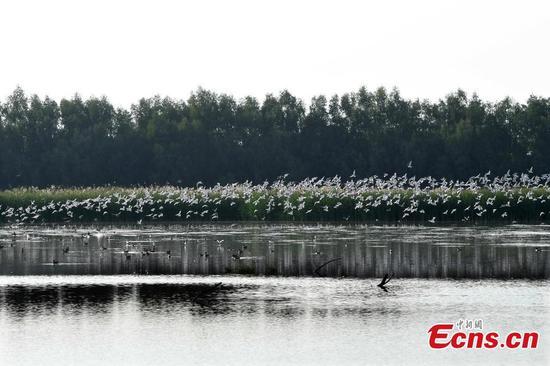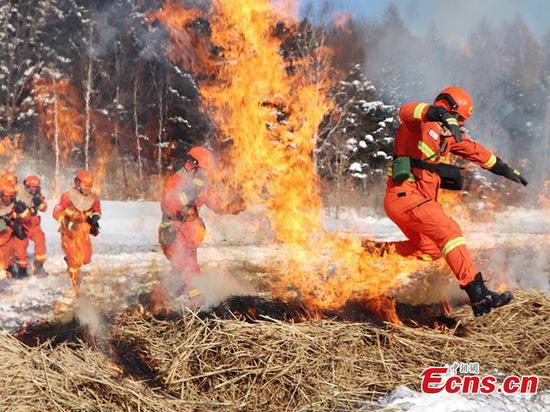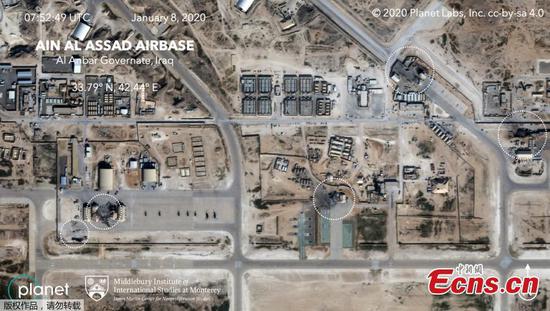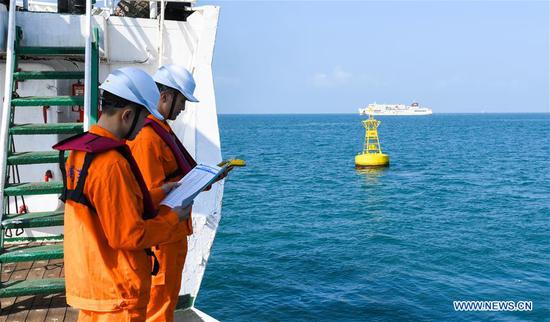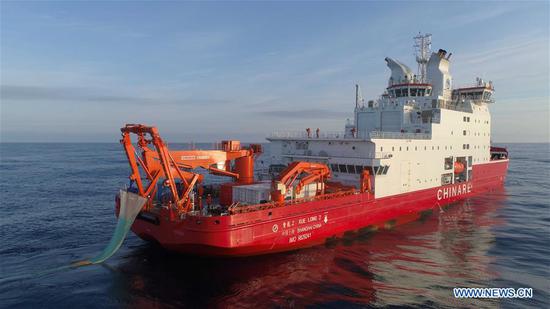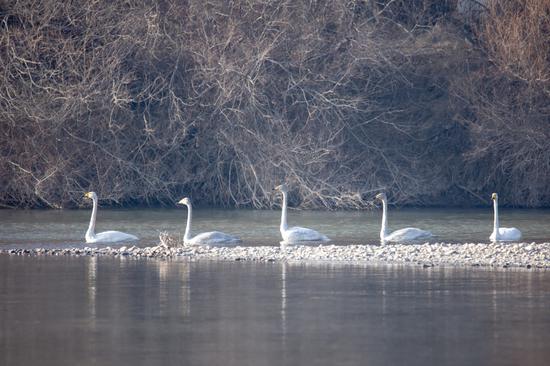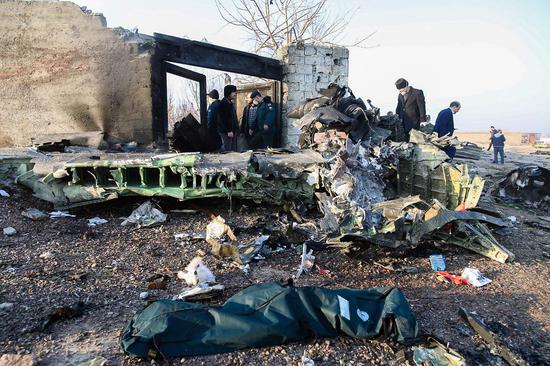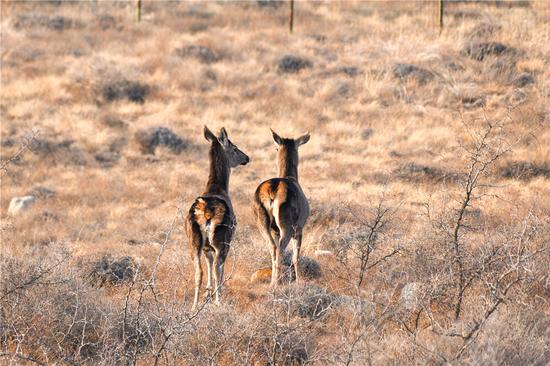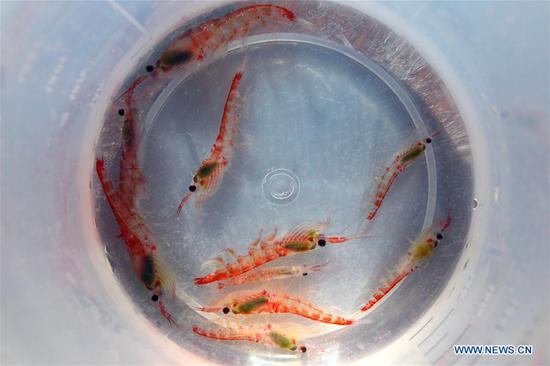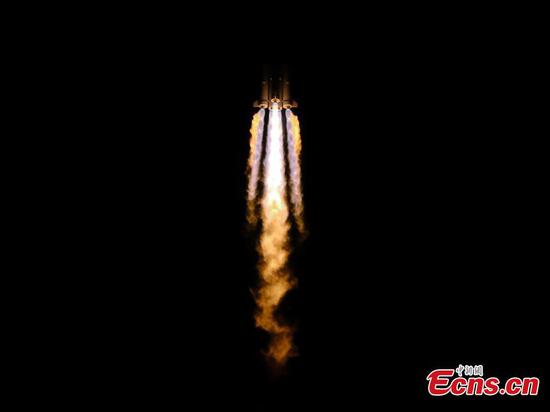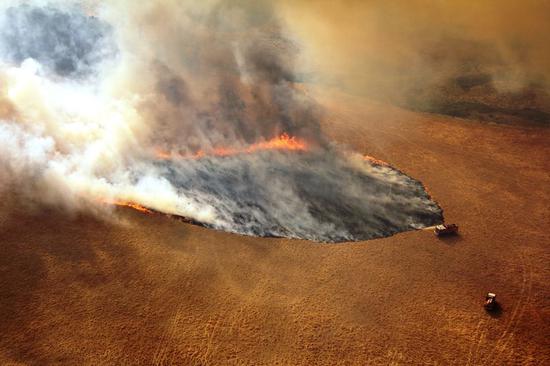
Photo taken on Dec. 20, 2019 shows fire trucks working at Lexton bushfire site in western Victoria, Australia. (Wayne Riggs/CFA/Handout via Xinhua)
Australians braced themselves as the bushfire worsened again with extreme heat and winds fanning flames in the eastern states, which is far from over.
Since September of last year, at least 27 lives have been lost, more than 2,300 homes destroyed and an estimated 1 billion animals have perished nationwide.
Over 10 million hectares of wilderness has burned, which is about the size of South Korea, leaving large sections of the country including major cities blanketed in smoke.
On Friday, emergency warnings were in place for the states of New South Wales (NSW) and Victoria which were anticipating strong winds and temperatures in excess of 40 degrees centigrade.
NSW Rural Fire Service (RFS) Spokesman Ben Shepard told Xinhua on Friday that the crisis and ongoing threat to communities was far from over.
"There is a likelihood that we will see further communities threatened... and the possibility of further losses," he said.
"Until such time that we have significant rainfall across the state, we're going to continue this firefight still for days, weeks, if not months ahead."
On Kangaroo Island in the state of South Australia, fires also flared and have forced the evacuation of thousands of residents.
Australian Defence Force personnel and assets, including helicopters, were on standby to respond to the disaster if needed, helping to establish communication with remote communities and ferry supplies.
A firefighting helicopter crash landed into a dam while assisting with fires on the NSW South Coast on Thursday afternoon. The pilot was able to swim to safety unharmed, but the helicopter remained submerged as of Friday.
Revised estimates have put the total number of animals killed in the disaster at over 1 billion, including native koalas and kangaroos.
The reason behind this fire season's length and severity has been attributed to an existing drought, on top off a number of days of high winds and temperatures.
Australia experienced it's hottest and driest on record in 2019, caused by climate change combined with unusual weather patterns, the country's Bureau of Meteorology said on Thursday.
While taking a significant toll on the country and its people, the best of the Australian spirit has also been on display in the face of great adversity.
Former Prime Minister Tony Abbott, who is a decade long member of the volunteer-based NSW RFS, joined fellow firefighters battling blazes on the frontline. He has been praised for setting an example of community service and selflessness.
Meanwhile authorities are urging overseas visitors not to change their travel plans to Australia, keeping in mind that the fires are only affecting parts of the country and there is no danger in most areas.
"Australia still is open for business, and that's critical in terms of minimizing, what will be a devastating impact economic impact on top of the quite catastrophic human impact that we've seen from those bushfires," opposition leader Anthony Albanese said. Enditem









